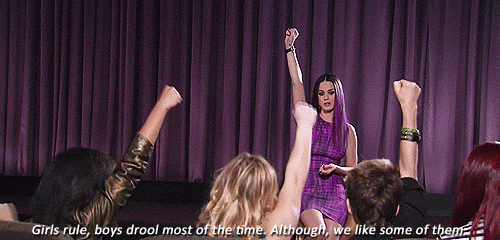One of the joys of being a parent—I have three children, ages 6, 4, and 8 months—is that one gets to witness individual case studies in human nature.
It’s no secret that small children are basically all id. They are capable of warmth and compassion, but those traits often disappear as soon as they run up against their own desires.
But human nature manifests itself in other ways, too. One surprising thing I’ve noticed is how aware my older two children are of gender. They are really quite obsessive about it.
“I want da blue cup!”
“No, that’s a boy’s book!”
“Daddy, dis is da boys’ side; dat is da girls side.”
It’s one of the most striking things I’ve noticed as a parent. While my children appear utterly unaware of things like race and class, they exhibit a fierce, tribal-like mentality in regards to gender.
This was not particularly alarming to me. Kids will be kids, right?
And then something occurred to me: Our society has begun to approach gender in much the same fashion. Everything from the Affordable Care Act to Wonder Woman to CEO pay is viewed the through prism of boys v. girls.
About once a week I hear my daughter and elder son squabble about what movie they are going to watch. Invariably one will say, “No; there are no [boys/girls] in that!”
What I didn’t know until I started writing this article was that there is an actual assessment to determine whether a film passes the gender-fairness test. It’s called “the Bechdel Test” (or the “Bechdel-Wallace Test”) and was developed in 1985 by cartoonist Alison Bechdel.
The Bechdel Test has three criteria:
- The film must have at least two women in it.
- The women must talk to each other,
- about something besides a man.
It’s not unusual to see media shame movies that fail the Bechdel Test, such as The Lord of the Rings trilogy, The Star Wars trilogy, and Citizen Kane.
But why? Would Return of the King have been a better movie if Peter Jackson had arranged a scene for Arwyn and Eowyn to discuss Aragorn war strategy? Would The Little Mermaid have benefited from the screenwriter plugging in a quick chat between Ariel and one of her sisters?
Maybe they would have. But I suspect not. Such a test feels both arbitrary and capricious, a contrived distraction from the goal of every serious filmmaker: creating good art.
I’m not suggesting we ignore issues important to women. But I do wonder if our culture’s fixation on gender has become divisive.
Many people view this gender focus as progress. But I wonder if it’s not the opposite: a primitive tribalism—and a rather childish one at that.

















Leave a Comment
Your email address will not be published. Required fields are marked with *